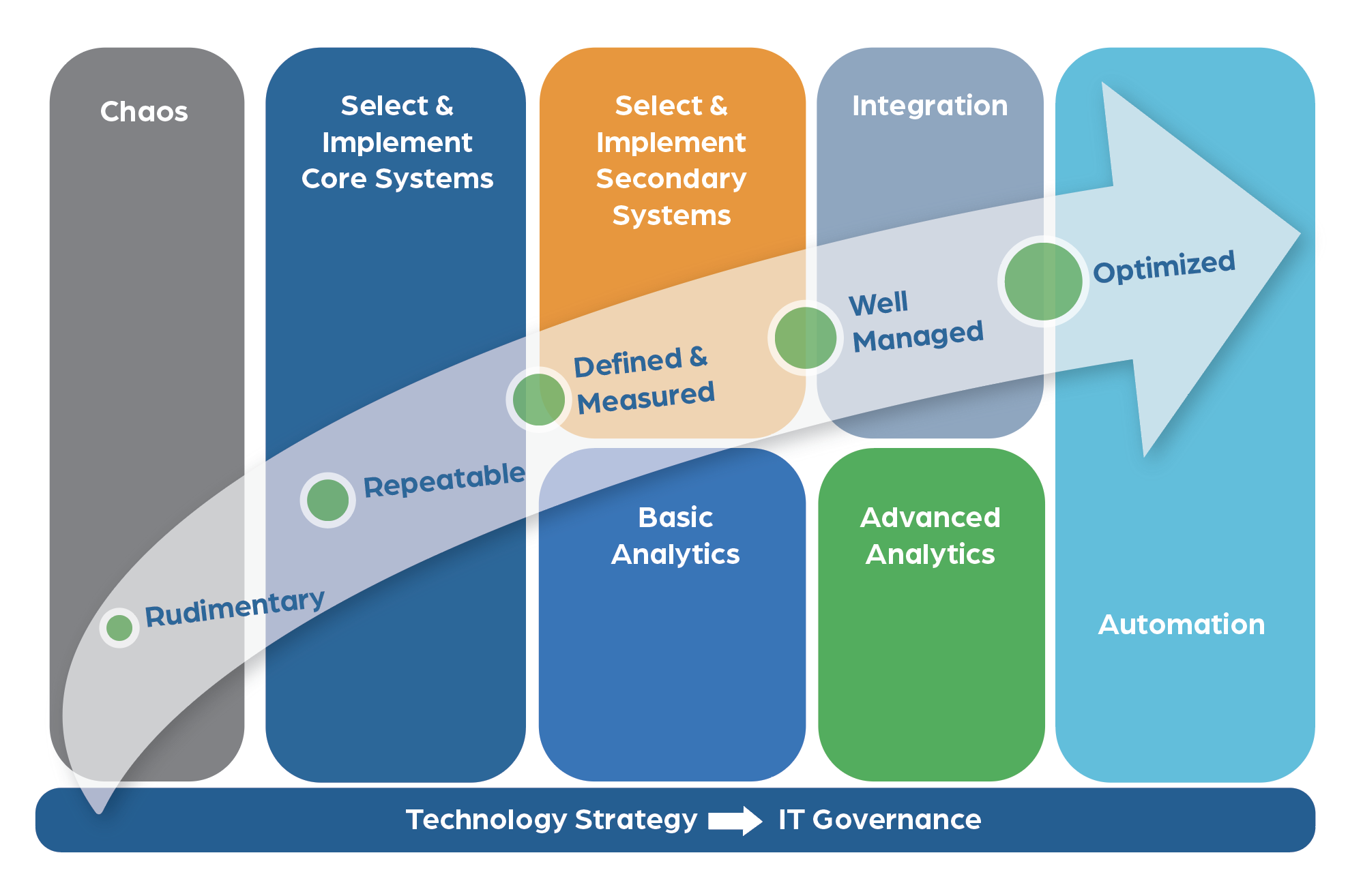
The Stages of Technology Maturity

Stage 1
Rudimentary
Basic Software with no integrations. Unable to interpret data. Organization is technophobic. No organized collection of data and sensitive data is stored openly. IT support is limited. No data strategy.

Stage 2
Repeatable
Organization now utilizing ERP, CRM, and accounting platform. Coordinated information sharing across organization. Manual integrations. Manual report generation. Developing in-house super users. Secured correspondence and data storage. Open to technology changes but skeptical.

Stage 3
Defined and Measured
CRM across all functions with core systems implemented and integrated. Strategic IT plan in place. Collecting key data and cleaning regularly. Some automated reports. Comfortable with technology and open to improvement. Managed service infrastructure support. Security protocols in place and observed.

Stage 4
Well Managed
Core systems are cloud based and integrated. Technology aligns with mission. Data warehouse in place. Data quality reporting with external measures. Centralized outcome and longitudinal analysis. Some compliance reporting automated. MFA, Encryption, IP security. Secure and compliant IT.

Stage 5
Optimized
Fully integrated, open architecture. All systems are automated and integrated. Fully automated data collection with QC. Automated forecasting, prescriptive measure and outcome modeling. Technology is symbiotic to organization. 3rd party audits of security. In house IT development .
Getting Started
1. Evaluate Needs
• Assess current challenges
• Engage business leaders and
board in process
• Consider third party assessment
2. Develop a Strategy
• Figure out desired stage and
timeline
• Align technology plan with
your mission and vision
3. Execute
• Develop phased and thorough
implementation plan
• Implement new technology
• Work with users to manage change
Need some help creating your plan?
ATX takes a structured approach toward technology assessments to quickly deliver high value results. We offer several different types of technology assessment services including:
• IT Application Strategy • BI Strategy
• Software Selection • System Implementation
• Project Management • Business Process Design
